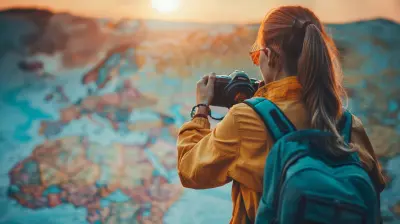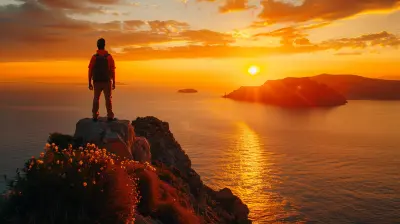Important Health Considerations for Adventure Travelers
18 June 2025
So, you’ve caught the adventure travel bug — the call of the mountains, the thrill of white-water rapids, the lure of untamed jungles, or maybe even the icy vastness of the Arctic. Adventure travel can be incredibly rewarding, but it also comes with its fair share of health risks. And trust me, the last thing you want when summiting a peak in Nepal or diving in Belize is to be sidelined by something that could’ve been easily prevented.
Let’s break down the important health considerations for adventure travelers. This isn’t just your average “don’t drink the water” list — we’re diving into the nitty-gritty so you can hit the road (or trail) prepared and stay healthy while chasing epic experiences.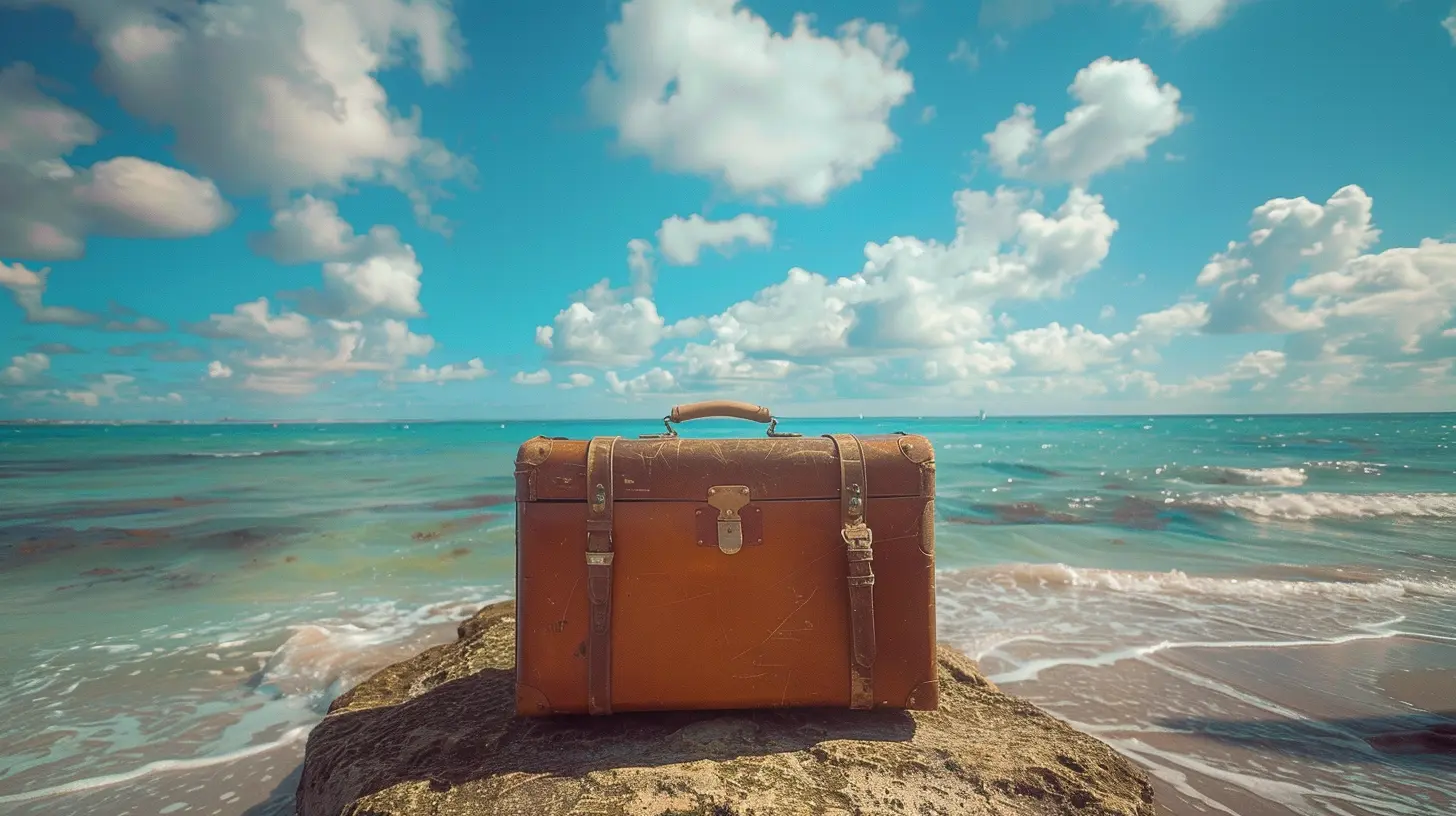
Why Health Should Be a Top Priority for Adventure Travelers
Let’s face it — adventure travel isn’t just a walk in the park. Whether you're trekking through remote highlands or zip-lining across forests, it puts your body (and mind) through its paces. It's exhausting, exhilarating, and sometimes unpredictable.Getting sick or injured can bring even the most epic trip to a screeching halt. That’s why it’s crucial to think ahead and stack the odds in your favor — because, when you’re miles from the nearest clinic, preparation is everything.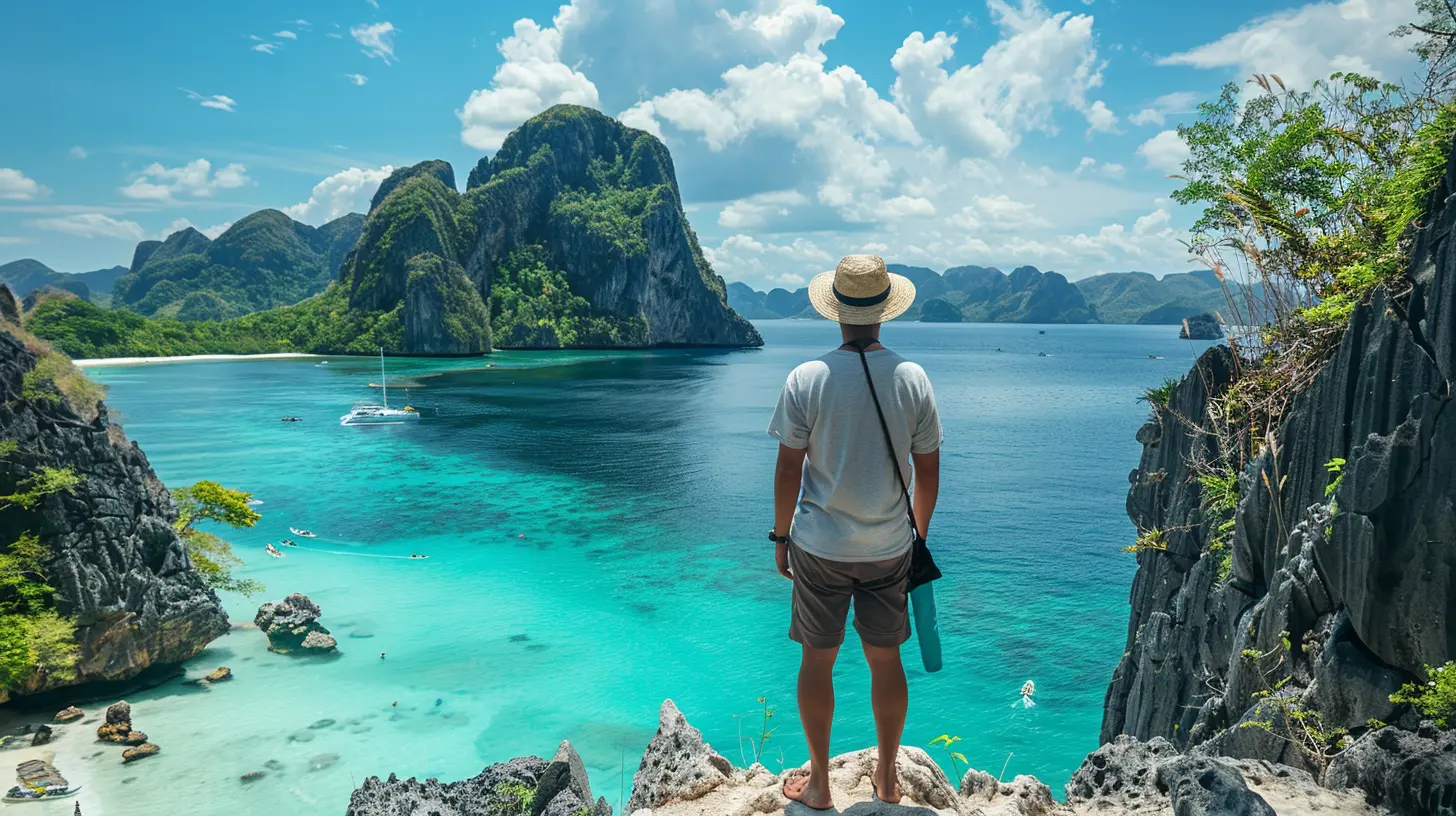
Get Your Health in Check Before You Go
1. Visit a Travel Health Clinic
First things first — schedule a visit to a travel health clinic or talk to your doctor at least 6–8 weeks before you leave. Why so early? Some vaccines take time to kick in fully, and others require multiple doses.You'll want to discuss:
- Travel vaccines (like Yellow Fever, Rabies, or Typhoid)
- Routine vaccinations (Tetanus, MMR, Hepatitis A/B — don’t skip these!)
- Malaria prophylaxis if you're heading to high-risk zones
2. Be Real About Your Fitness Level
Look, no judgment here — but if you’ve been desk-bound for the past year, don’t plan on hiking Everest Base Camp without some serious prep. Be honest with yourself. What’s your stamina like? How do you handle altitude or heat?Start training early. Build endurance, strength, and flexibility. It’ll make your trip smoother and a lot more enjoyable.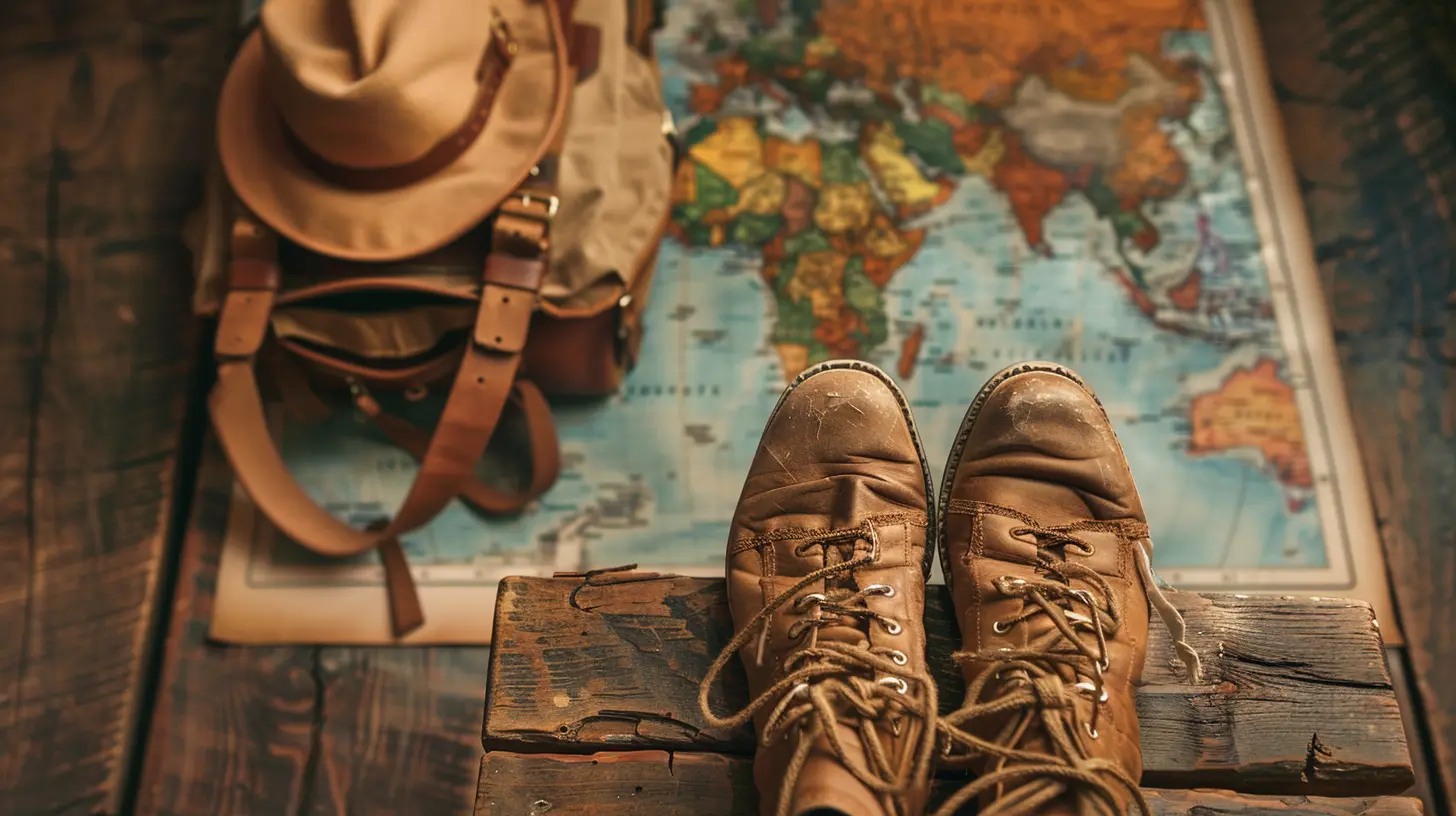
Vaccines, Meds, and Your Travel Pharmacy
3. Don’t Skip Your Shots
We all hate needles, but adulting means doing stuff we don’t always love — and vaccines are high on that list. Depending on your destination, you might need:- Hepatitis A & B
- Typhoid
- Yellow Fever (some countries require proof!)
- Japanese Encephalitis (Asia-bound folks, this one’s for you)
- Rabies (especially if you're going remote or you'll be around animals)
4. Pack a Travel Medical Kit
No, not the bulky suitcase-sized one. Just a compact, adventure-essentials medical kit. Here’s a quick checklist:- Pain relievers (Ibuprofen, Acetaminophen)
- Antidiarrheals (Loperamide)
- Electrolyte packets
- Antiseptic wipes & bandages
- Antibiotic ointment
- Motion sickness pills
- Antihistamines
- Tweezers (for ticks, splinters, or cactus spikes)
- Prescription meds (with a copy of your prescription)
Bonus tip: Keep some meds in your carry-on in case your luggage takes its own adventure.
Understanding Local Health Risks
5. Know the Diseases That Run Local
Every region has its own “playlist” of common health risks. South America? Think Dengue and Yellow Fever. Africa? Malaria and Cholera. Southeast Asia? Rabies and Japanese Encephalitis are a concern.Read up on:
- Water safety – Is tap water okay or should it be bottled?
- Mosquito-borne diseases – Bring DEET-based repellents and consider Permethrin-treated clothes.
- Food hygiene – Street food is awesome, but watch how it’s prepared.
If locals aren’t drinking from the tap, you probably shouldn’t either.
Stay Safe While You're Getting That Adrenaline Fix
6. Altitude Sickness Is Real (And It’s Brutal)
Going to high places? Think Peru, Nepal, or the Rockies? Altitude sickness isn’t just a headache — it can hit hard and fast. Symptoms range from mild nausea to full-blown pulmonary edema. Yikes.- Take it slow – Don’t race to the top
- Stay hydrated – Water is your best friend
- Sleep low, climb high – Let your body acclimate
- Consider meds – Ask your doc about Acetazolamide (Diamox)
7. Adventure Sports Come with Risks
Skydiving? Bungee jumping? White-water rafting? Great for stories. Also great for sprains, fractures, and even concussions.Make sure you:
- Use licensed and insured operators
- Double-check safety gear and procedures
- Know your limits — no peer pressure!
- Have travel insurance that covers extreme sports (don’t assume yours does)
Hydration and Nutrition on the Road
8. Drink Smart
Dehydration is sneaky. It creeps up on you, especially in hot or high-altitude environments. If you’re sweating buckets and not peeing much, it’s time to drink up.Clean, safe water is key. Use:
- Filtration bottles (like Grayl or Lifestraw)
- Purification tablets or UV pens
- Boiled water (if you're really roughing it)
Avoid ice in places with questionable tap water — it’s often made from the same stuff.
9. Eat to Fuel Your Adventures
You’re burning more calories than usual, so eat accordingly. Favor whole foods, fruits, and carbs. But also — don’t go trying the spiciest chili dish in Thailand day one. Gut issues can derail your trip fast.Carry some snacks like nut bars or jerky for remote hikes. And maybe a few rehydration salts in case things “go south,” digestion-wise.
Protecting Your Skin and Eyes
10. Sunscreen Isn’t Optional
At altitude, the sun is savage. Even in cloudy, cold places — UV rays are still doing damage. Lather on that SPF 30+ every few hours. Reapply after sweating or swimming.You’ll also want:
- Sunglasses with UV protection
- Lip balm with SPF
- A wide-brim hat (think Indiana Jones chic)
11. Insect Protection: Your First Line of Defense
Mosquitos, ticks, sandflies — they're not just annoying, they're dangerous. Insect-borne diseases are serious business.How to protect yourself:
- Use a repellent with at least 30% DEET or picaridin
- Wear light-colored, long-sleeved clothing
- Sleep under mosquito nets (especially in rural areas)
- Shake out clothes and shoes before wearing them
Solo Travel Health Strategies
12. Let Someone Know Where You're Going
If you’re going off-grid (looking at you, solo trekkers), always tell someone your route, check-in schedule, and return date. Apps like Garmin InReach or offline GPS tools can save your butt in emergencies.Also, carry a card with:
- Emergency contacts
- Allergies or medical conditions
- Blood type
Just in case.
Mental Health Matters Too
13. Adventure Fatigue Is a Thing
You've been moving for days, your body aches, and you haven't had a real shower in a week. Burnout can hit even in paradise. Don’t ignore mental fatigue.What helps?
- Schedule downtime
- Don’t over-plan your itinerary
- Stay connected with loved ones
- Reflect: journal, meditate, or just sit still for once
Travel can be life-changing, but only if you’re fully present to appreciate it.
Travel Insurance: It’s Non-Negotiable
Don’t be that person who gambles with medical emergencies abroad. Seriously, accidents happen — from twisted ankles to appendicitis. Get comprehensive travel insurance and read the fine print.Look for coverage that includes:
- Emergency medical expenses
- Medical evacuation (this can cost tens of thousands!)
- Coverage for extreme sports or adventure activities
- Trip interruption and delays
It’s peace of mind, and your future self will thank you.
Post-Trip Precautions
Even after the adventure wraps, your health journey isn’t completely over.14. Keep an Eye on Delayed Symptoms
Sometimes, tropical diseases or infections lay low for weeks. If you experience fever, fatigue, or digestive issues after returning home, see a doctor and mention your travel history.Better safe than sorry.
Wrapping It All Up
Adventure travel is like a full-body workout for your soul — it stretches you, challenges you, and rewards you in ways a beach vacation never could. But with great adventure comes great responsibility. Your health has to come first, or you risk turning those dream experiences into nightmare stories.So, get your shots, pack smart, stay fueled, and listen to your body. Whether you're glacier climbing in Patagonia or zip-lining through Costa Rica, staying healthy means more energy for the thrills and fewer regrets on the road.
And remember — you're not being paranoid, you're being a smart traveler. And smart travelers have more fun.
all images in this post were generated using AI tools
Category:
Travel HealthAuthor:

Taylor McDowell
Discussion
rate this article
2 comments
Trixie Frank
Adventure awaits, but so does the need for health savvy! A little prep goes a long way—your adventurous spirit will thank you later!
August 25, 2025 at 2:19 PM

Taylor McDowell
Thank you! Prioritizing health ensures a more enjoyable and safe adventure experience. Happy travels!
Jacob Carey
Stay informed and prepared to ensure a safe and enjoyable adventure travel experience!
June 18, 2025 at 4:55 AM

Taylor McDowell
Absolutely! Staying informed and prepared is key to a safe and enjoyable adventure. Thanks for your comment!

